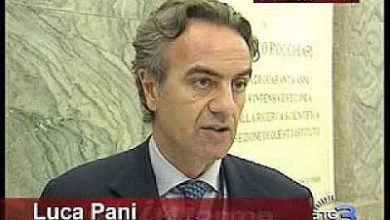
The failures of the lack of programming "make the future of the National Health Service uncertain". Today, ASL specialists are on average elderly, 93% is over 40 years old, 54% is over 55 years old, a third of over 60s are ready to leave before 2019.
Four thousand fewer outpatient specialists: within 5 years a third of the category will leave without being replaced. And if we add the 2 million Piedmontese who will be left without a family doctor in 2024 estimated by Fimmg and a few million other Italians in the same conditions, a depopulation of scrubs is foreshadowed, with all due respect to the government and regions that aim to strengthen local medicine.
 From a research by the Ca' Foscari University of Venice al 47th Sumai Assoprof congress the failures of the lack of programming emerge which - to quote the leader of the main union of local health specialists Robert Lala– «makes the future of the National Health Service uncertain». To achieve the goal of a territorial healthcare redesigned on chronicity, capable of taking charge of services that have been improperly provided by hospitals up to now, Lala and Sumai declare themselves "ready to make sacrifices but also certain that a further blockage of contracts represents only the umpteenth buffer solution to remedy countless waste due to wrong choices".
From a research by the Ca' Foscari University of Venice al 47th Sumai Assoprof congress the failures of the lack of programming emerge which - to quote the leader of the main union of local health specialists Robert Lala– «makes the future of the National Health Service uncertain». To achieve the goal of a territorial healthcare redesigned on chronicity, capable of taking charge of services that have been improperly provided by hospitals up to now, Lala and Sumai declare themselves "ready to make sacrifices but also certain that a further blockage of contracts represents only the umpteenth buffer solution to remedy countless waste due to wrong choices".
The investigation of Ca' Foscari points out that today the Local Health Authority specialists are on average elderly, 93% are over 40 years old, 54% are over 55 years old, a third of the over 60s are ready to leave before 2019. Incoming, blocked turnover and repeated permanent contracts among the under 40s (where women predominate, 60% to 40%) prefigure a scenario where the ASL specialist will hardly be dominant.
Lala is ready to play his part in the negotiations with Sisac to better define the tasks of the branch managers who, at the district level, will have the pulse of their colleagues in the area, and the rules of engagement with the representatives of the functional aggregations of family doctors. But his report is full of questions, and in the meantime the 44% of young specialists considers himself undervalued in his work, besides the 50% works in more than one Local Health Authority. Territorial and stabilization references are missing, resources and government-regional relationships are in uncertainty.
And yet, Lala reassures us, "we want to believe and trust what is indicated in the Health Pact", not in words but through "concrete actions that not only aim at defending the category but strategically aim to build a certain future for health care and citizens".
Mauro Miserendino
Saturday, October 11, 2014 – Doctor33
Anaao young people, instead of regionalizing competitions we act on turnover and requirements
Review the May decree on precarious workers to unlock the competitions in the regions and, in the long run, remove the specialty as a prerequisite for practicing in the hospital: these are the measures that for Anaao Giovani can guarantee an entry path capable of protecting future NHS doctors, somehow realizing the "regionalization" of the competitions supported by Luca Zaia. The president of Veneto asks the government to allow virtuous regions to hire professionals without constraints, after thousands of candidates from all over Italy presented themselves, organized and unexpectedly, in the recent competitions for nurses in the Upper Padua area and midwifery in the Belluno area.
«Every year, hundreds of young people are trained in the best possible way in the Veneto region and have the right to find professional outlets in the region where they live or where they have chosen to learn a  profession". Secretary Anaao Young Dominic Montemurro he finds Zaia's requests by no means trivial. "Of course - says Montemurro - the question should not be reduced to who is better or not at winning a competition, to the universities of the North against those of the South, but it is time to establish the criteria of" federalism of recruitment in the appropriate fora and in this case it could be the state-regions conference to do it ".
profession". Secretary Anaao Young Dominic Montemurro he finds Zaia's requests by no means trivial. "Of course - says Montemurro - the question should not be reduced to who is better or not at winning a competition, to the universities of the North against those of the South, but it is time to establish the criteria of" federalism of recruitment in the appropriate fora and in this case it could be the state-regions conference to do it ".
The basic problem is that "in many situations the competitions are blocked, starting from the regions in the recovery plan (from where the most candidates move, ed.)". «Moreover – Montemurro adds – Veneto also has young precarious doctors. Throughout Italy, it would be appropriate to unlock the hiring of precarious workers already operating on the soil of one's own region with the Health Pact as a priority. Upstream, however, retirements need to be quantified region by region.
And it is necessary to loosen the mechanism of regional authorizations for the completion of competitions required today to access any type of contract, but without planning bases behind it. Downstream there is the problem of young people. "Among the overabundance of enrollments in medicine and the scarcity of places in the specialties, in a few years we will have 12,000 young precarious graduates and if we do not think of a work solution for them, regionalist proposals may not be enough to protect those same rights that Zaia affirms".
Montemurro evokes «a sort of jobs act for the young doctor, in which training and work are reconciled. The idea would be to eliminate the specialty as a prerequisite for public competitions but maintain the commitment to obtain the title, within a path that involves universities and hospitals equally. These rules should in practice be harmonized with those of the Dpcm on precarious workers of last May".
Mauro Miserendino
Saturday, October 11, 2014 – Doctor33





